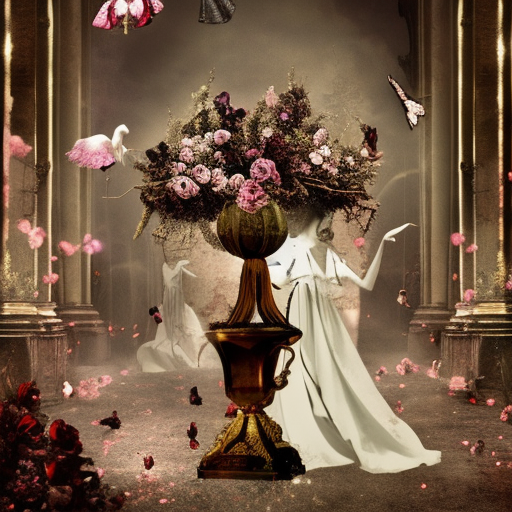One-line summary:
Les Fleurs du Mal is a collection of poetry by Charles Baudelaire that explores themes of beauty, love, death, and the human condition.
Les Fleurs du Mal, translated as “The Flowers of Evil,” is a collection of poetry written by French poet Charles Baudelaire. First published in 1857, this controversial work is considered a masterpiece of French literature. Baudelaire’s collection of poems delves into themes of beauty, love, death, and the complexities of the human condition. Through his evocative and often dark imagery, Baudelaire challenges societal norms and explores the depths of human emotions.
Exploring the Depths of Human Experience
Les Fleurs du Mal takes readers on a journey through the various facets of human experience. Baudelaire’s poetry explores the complexities of love, desire, and passion. He delves into the darker aspects of human nature, including themes of sin, guilt, and the allure of forbidden pleasures. The poems in this collection often depict the struggles and contradictions within the human psyche, reflecting the inner turmoil and conflicts that individuals face.
Beauty and Decay
One of the central themes in Les Fleurs du Mal is the exploration of beauty and its inevitable decay. Baudelaire challenges conventional notions of beauty, presenting a more nuanced and complex understanding of the concept. He portrays beauty as transient and fragile, highlighting its fleeting nature. Through vivid descriptions and striking imagery, Baudelaire captures the beauty in decay, finding allure in the decaying and the grotesque. This theme reflects the poet’s fascination with the transient nature of life and the inevitability of death.
Challenging Societal Norms
Baudelaire’s collection of poetry in Les Fleurs du Mal was met with controversy upon its publication. The explicit and provocative nature of some of the poems led to charges of obscenity, and six of the poems were banned from publication until 1949. Baudelaire’s work challenged the moral and societal norms of his time, exploring taboo subjects and pushing the boundaries of acceptability. Through his poetry, he sought to expose the hypocrisy and constraints of society, offering a critique of the rigid moral codes that governed French society in the 19th century.
Key Takeaways:
- Baudelaire’s Les Fleurs du Mal explores themes of beauty, love, death, and the complexities of the human condition.
- The collection delves into the darker aspects of human nature, including sin, guilt, and the allure of forbidden pleasures.
- Baudelaire challenges conventional notions of beauty, presenting a more nuanced understanding that embraces decay and the transient nature of life.
- Les Fleurs du Mal is a critique of societal norms, challenging the moral codes and hypocrisy of 19th-century French society.
“You have to be always drunk. That’s all there is to it—it’s the only way. So as not to feel the horrible burden of time that breaks your back and bends you to the earth, you have to be continually drunk.”
– Charles Baudelaire, Les Fleurs du Mal
In conclusion, Les Fleurs du Mal is a profound and thought-provoking collection of poetry that delves into the depths of human experience. Baudelaire’s exploration of beauty, love, and the complexities of the human condition challenges societal norms and offers a critique of the constraints imposed by society. Through his evocative imagery and provocative themes, Baudelaire invites readers to confront their own inner struggles and contemplate the transient nature of life.












